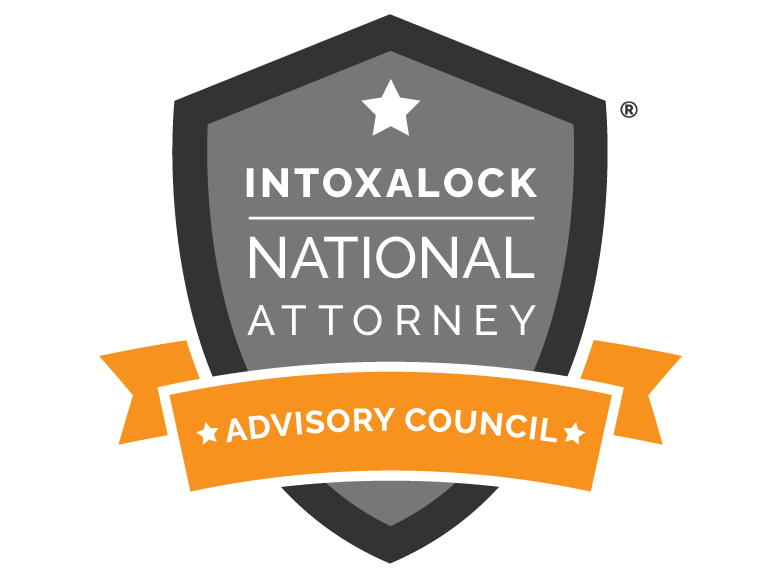San Antonio White Collar Crimes Lawyer
When you or your business faces criminal charges for bribery, fraud, or theft, you want an attorney who understands how to decipher intricate corporate and financial matters, possesses in-depth knowledge of state and federal laws, as well as a firm grasp of how these regulations and practices intersect. In addition to our years of experience defending clients at the state and federal level, our San Antonio white collar criminal lawyers at Hoelscher Gebbia Cepeda PLLC work with forensic accountants, former IRS agents and investigators, and other professional experts and specialists, to ensure we use every available resource when defending our clients.
Navigate This Page
- Why Choose Hoelscher Gebbia Cepeda, PLLC For Your Case?
- How Will a San Antonio White Collar Crime Attorney Help Your Case?
- What is a White Collar Crime?
- Types of White Collar Crime Cases We Handle
- Federal White Collar Crimes
- Federal Target Letters
- Penalties for White Collar Offenses in Texas
- Defenses to White Collar Crimes
- San Antonio White Collar Crime Attorneys Serving All Of Texas
- White Collar Crimes Resources
- Contact Our San Antonio White Collar Crime Lawyers Today
Why Choose Hoelscher Gebbia Cepeda, PLLC For Your Case?
If you are facing a state or federal white-collar crime charge, you must turn to a skilled criminal defense attorney in San Antonio as soon as possible to help you through this. Hoelscher Gebbia Cepeda, PLLC is standing by to help you today in Bexar County.
- At Hoelscher Gebbia Cepeda, PLLC, we have a thorough understanding of all state and federal laws regarding white collar offenses.
- Our firm has a reputation for providing aggressive legal representation to those accused of white-collar crimes in and around the San Antonio area.
- Hoelscher Gebbia Cepeda, PLLC has been recognized as a Top Criminal Defense Firm and has been featured in both local and state media for our work on behalf of clients.
- We understand that every white-collar crime case we take in San Antonio is different, so we will craft a customized legal strategy built to meet your specific needs.
How Will a San Antonio White Collar Crime Attorney Help Your Case?
A San Antonio white collar crime defense attorney should have one strategy in mind – holding the Texas government or federal government to the highest burden of proof required for these cases. Just because you have been accused of a crime does not mean that you will ultimately be found guilty. A skilled San Antonio white collar crimes lawyer can use their resources and legal expertise to:
- Conduct a thorough evaluation and white collar crime investigation into the allegation(s) against you. Does the government have a strong or weak case? Are there any witnesses that the prosecutors are calling on? Was the evidence gathered legally? All these are questions an attorney will work to answer and build your strong defense.
- A white collar crime attorney will use expert analysis in your case. If necessary, this could involve getting the best investigators and experts to look into your case. This includes forensic accountants, former special agents, and more.
- Your attorney will also remain in constant communication with prosecutors and will be aware of any possible plea deals in your case if a deal is warranted given the facts of your situation. There are times when a strategic negotiation could result in a more favorable outcome for your case.
What is a White Collar Crime?
A white collar crime is a non-violent crime where financial gain is the primary motive. White collar criminals are often professionals or office-holders with above-average compensation. The difference between a white collar crime and a blue collar crime is the type of criminal activity in which the alleged defendant is engaged.
Blue collar crimes include those of more limited means like robbery and burglary. White collar crimes are more widespread and complex such as Ponzi schemes.
White collar crimes may be committed by individuals or by corporations.
Types of White Collar Crime Cases We Handle
In Texas, many white collar crimes are lumped under “theft” crimes. Whether you have been accused of or are being investigated for engaging in deceptive trade practices or the misappropriation of fiduciary funds, we have the resources and experience to fight these complex criminal charges. At the federal level, white collar defense lawyers typically deal with conspiracy, racketeering, or fraud charges.
There are numerous types of white collar crimes we handle at Hoelscher Gebbia Cepeda PLLC, on the state and federal level, including:
- Bank fraud
- Credit card fraud
- Embezzlement
- Extortion
- Forgery
- Health care fraud
- Elder fraud
- Organized crime
- Insider trading
- Insurance fraud
- Bribery
- Money laundering
- Mortgage fraud
- Securities fraud
- Financial crimes
- Tax evasion
Most federal white collar crimes are serious felonies that can result in prison sentences. In many instances, the government will carry out a prolonged investigation to build a case. If you or your business is under federal investigation, it’s essential to secure representation as early as possible.
Federal White Collar Crimes
According to the Federal Bureau of Investigation (FBI), white collar crimes cost the United States more than $300 billion every year. Most of these crimes are deliberate, occur over a period of time, and are disguised as legitimate behavior.
Some common federal white collar crimes are the following:
Bribery
Bribery is the offer or acceptance of anything of value in exchange for influence on a government or public employee. Bribes can include gifts or payments of money. They are typically exchanged for favorable treatment.
Generally, both parties to bribery are chargeable with the offense. A federal conviction of bribery can result in fines of up to three times the monetary equivalent of the thing of value or a federal sentence of up to fifteen years in federal prison. A conviction can also bar the defendant from holding any United States government position.
Bribery is a serious federal criminal offense and should be taken seriously. Allegations of bribery lead to lengthy and thorough investigations by federal law enforcement.
Consumer Fraud
Consumer fraud is conducting unfair or deceptive trade practices in consumer transactions. It includes the intentional withholding of information or misleading a person on purpose; however, the intent to deceive is not a prerequisite to a conviction for consumer fraud.
Consumer fraud is a common form of white collar crime and can include: credit card fraud, insurance fraud, credit fraud, healthcare fraud, health insurance fraud, or business fraud. If convicted of consumer fraud, you may be facing hefty fines and/or imprisonment.
Anyone involved in a consumer scam can be charged with consumer fraud where a consumer was given false information to achieve financial gain.
Corporate Fraud
Corporate fraud, or securities fraud, occurs when a corporate officer or director makes a material misrepresentation or distortion related to stock information or an officer or director unlawfully discloses confidential information related to stock. An individual or entity acts upon the unlawful disclosure of certain confidential stock information.
A conviction for corporate fraud type requires evidence that the offender intended to deceive, manipulate, or defraud the victim. However, there does not need to be any evidence that the offender intended to cause harm to the victim.
Counterfeiting
Counterfeiting is the crime of making a false document. Commonly counterfeited documents include contracts, identification cards, money, and legal certificates. Counterfeiting also involves creating replicas of products to pass them off as genuine, like designer clothing and watches.
Extortion
Extortion, also called blackmail, is the gaining of property or money by almost any kind of force, including threats of violence, harm to reputation, or unfavorable government action. Extortion, while a type of theft, does not generally pose any imminent physical danger to the victim.
The Hobbs Act allows extortion to be prosecuted as a federal crime involving demands made by individuals and government employees using a telephone, U.S. mail, internet, or any other form of interstate commerce.
Forgery
Forgery is creating a false document, changing an existing document, or signing a document without authorization. Documents commonly forged include contracts, identification cards, and legal certificates.
A conviction for forgery carries significant fines and up to twenty years in federal prison.
Insider Trading
When a person with inside knowledge about a company’s dealings uses that information to trade stocks, they are insider trading. Individuals who may access inside information include brokers, stock analysts, investment bankers, and company employees. Federal law makes it a crime for anyone with inside information to buy or sell stocks based on their unique perspective or special knowledge.
The Securities and Exchange Commission, or SEC, enforces the securities laws that prohibit insider trading. It can be legal for insiders to trade stock as long as the trading does not take advantage of non-public information. Insider trading relates to the illegal practice where an individual makes trades using private information.
Insider trading is illegal because it raises the cost of capital for the issuers of securities and can decrease economic growth.
Tax Evasion
Tax evasion laws make it illegal for anyone to attempt to evade any tax imposed under federal statute willfully. It does not matter if the taxes are personal taxes or business taxes. The IRS can target any individual or business that pays taxes.
A conviction for tax evasion can result in penalties up to $100,000 for individuals and $500,000 for corporations and/or incarceration for up to five years, together with the costs of prosecution. The most common reasons for prosecution by the IRS are failure to file tax returns on time and providing false income information.
Federal Target Letters
If you have received a target letter from an Assistant United States Attorney regarding any white-collar crime, then you need to take this to mean that you are under investigation. If you receive a federal target letter, you need to speak to a skilled criminal defense lawyer as soon as possible. While a Federal target letter could mean a number of things, it is vital that you let a San Antonio white collar crime lawyer look over the notification and handle any communication with other parties involved.
Often, targets of white-collar investigations are not arrested right away. Even if you have an inkling that something is amiss, it is a good idea to speak to a lawyer. An attorney may be able to step in on your behalf to find out what is going on and gauge the amount of trouble you may be in. Early mitigation could make a huge difference in your financial crime case.
Penalties for White Collar Offenses in Texas
White collar crimes can be prosecuted by both the federal authorities and the State of Texas (Chapter 12 of the Texas Penal Code). The penalties for white collar crimes in Texas vary based on the following:
- The offense committed
- Whether the accused has a criminal history
- If the offense was committed against an elderly person
- The number of people affected by the offense
- The value stolen or used during the commission of the criminal act
Penalties and fines for a white collar crime in Texas could include:
- A conviction for a Class C misdemeanor white collar crime can result in a fine of up to $500;
- A conviction for a Class B misdemeanor white collar crime can result in a jail sentence up to 180 days, a fine up to $2,000 or both;
- A conviction for a Class A misdemeanor white collar crime can result in a jail sentence of up to one year, a fine up to $4,000 or both;
- A conviction for a state jail felony white collar crime can result in a jail sentence ranging from 180 days to two years, a fine up to $10,000 or both;
- A conviction for a felony of the third-degree white collar crime can result in a prison sentence ranging from two to 10 years, a fine up to $10,000 or both;
- A conviction for a felony of the second-degree white collar crime can result in a prison sentence ranging from two to 20 years, a fine up to $10,000 or both; and
- A conviction for a felony of the first-degree white collar crime can result in a prison sentence ranging from five to 99 years or life imprisonment, a fine up to $10,000, or both.
Defenses to White Collar Crimes
There are effective defenses against white-collar crimes. However, it takes an experienced white collar crimes attorney to effectively argue and employ these defenses on a defendant’s behalf. The most common defenses to white-collar crimes are the following:
- Prosecutorial weakness. If there are errors or deficiencies in the prosecutor’s case, a good criminal defense attorney can argue for a dismissal of one or more charges.
- Lack of intent. To be charged with a white-collar crime, a defendant must have intended to commit the act in question. Otherwise, the case may be dismissed.
- Lack of knowledge. When a defendant is one of several people involved in a crime but did not know a crime was being committed, he or she may use lack of knowledge as a defense.
- Coercion. If a defendant is forced to commit a crime, he or she has a valid defense.
- Entrapment. Entrapment occurs when a law enforcement officer coerces a defendant to commit a crime. It is a defendant’s burden to prove he or she would not have committed the crime without coercion by law enforcement.
- Non-fraudulent statements. When a defendant expresses an opinion, and the accusing party acts unreasonably based on the defendant’s opinion, the defendant may have a defense against fraud. The defendant’s non-fraudulent statement was simply mistaken for fraud.
- Incapacity. When a defendant is unable, due to either physical or mental incapacity, to understand or comprehend the nature of the alleged criminal acts, their white collar crime lawyer may use incapacity as a defense.
- Intoxication. A defendant who can prove intoxication at the time of the crime may be able to use their intoxication as a defense to their charges. However, it is more likely that intoxication will be a bargaining tool for a lesser offense or sentence.
- Plea Agreements. If the evidence against a defendant is overwhelming, a white collar defense attorney will attempt to negotiate a beneficial plea agreement. In a plea agreement, a defendant agrees to plead guilty, often to lesser or reduced charges, to avoid trial or a harsher sentence. In some cases, a defendant who chooses to cooperate with the authorities fully can receive a lesser sentence.
Every white-collar crime has unique circumstances, and no defense is one-size-fits-all. Always speak to a white collar crimes attorney in San Antonio about a specific case to learn what type of defense is best in your case.
San Antonio White Collar Crime Attorneys Serving All Of Texas
Although located in San Antonio, Texas, our white collar crime defense lawyers handle cases throughout Texas and are recognized in many Texas courts. Some places we defend criminal charges regularly include:
- Seguin, TX (Guadalupe County)
- San Antonio, TX (Bexar County)
- Floresville, TX (Wilson County)
- Pleasanton, TX (Atascosa County)
- New Braunfels, TX (Comal County)
- San Marcos, TX (Hays County)
- Boerne, TX (Kendall County)
- Hondo, TX (Medina County)
- Fredericksburg, TX (Gillespie County)
White Collar Crimes Resources
Read more about white-collar crimes, their prevention, and their impact on technology and the consumer economy through the following organizations and their websites:
- FBI. The FBI website’s section on white-collar crime outlines all major white-collar crime threats and programs in the United States. It also highlights corporate fraud in all of its aspects and serves as a platform to bring awareness to current and upcoming white-collar crime threats.
- National White Collar Crime Center. Through federal funding, the National White Collar Crime Center, or NW3C, develops and delivers economic crime investigation, high-tech crime investigation, digital forensics, criminal intelligence, and criminal justice training to state, local, tribal, and territorial criminal justice practitioners throughout the United States. The NW3C uses other funding sources to provide similar training to criminal justice professionals worldwide.
- Identity Theft Resource Center. The ITRC is the only national non-profit group in the U.S. to provide live, direct identity crime advice and victim assistance at no cost. It maintains the largest compilation of data breach information in the U.S., develops edu materials and presentations for organizations, and provides public research on victim impact.
- Association of Certified Fraud Examiners. The ACFE is the world’s largest anti-fraud organization and provides anti-fraud training and education. The website offers links to current topics and legal issues in the field and further resources for investigation.
Contact Our San Antonio White Collar Crime Lawyers Today
We have successfully helped many professionals avoid felony convictions for crimes against their employers, insurance companies, and federal and financial institutions. If you have been charged or are under investigation for state or federal business or economic crimes, contact our San Antonio law office and speak with our experienced white collar defense attorneys. Call (210) 222-9132 to schedule an initial consultation.
 Responsive Dedicated Aggressive
Responsive Dedicated Aggressive 
















